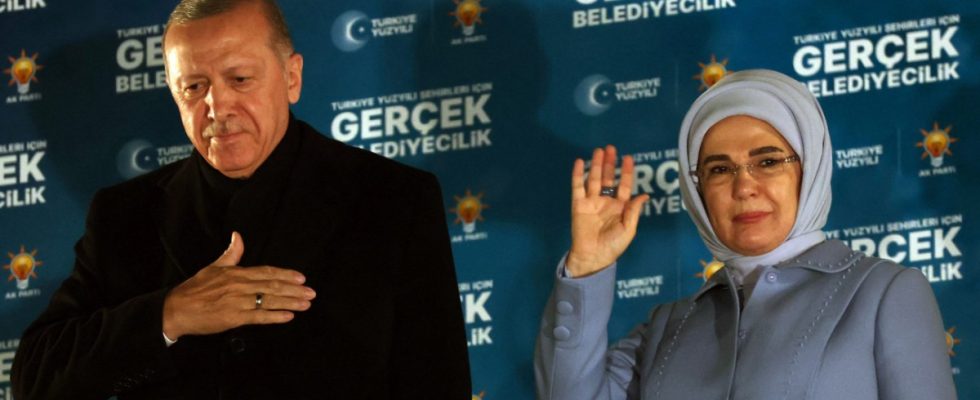For Recep Tayyip Erdoğan, the numbers mean a home defeat, and they are so powerful that his opponents could hardly believe it on election night. For example, in Üsküdar, a traditionally conservative district of Istanbul on the Asian bank of the Bosphorus, Erdoğan has had his private home there for many years and his AKP has always won there. Until this Sunday, when the opposition CHP candidate won.
In the Istanbul districts, these are more than symbolic victories for the opposition; they are likely to hurt Erdoğan. In Beyoğlu, the city center on the European side, where the president grew up and where he made his first political attempts in local elections, his AKP was also secure in the town hall for decades. It was over on Sunday. And it wasn’t even close.
You can use the word “historic” if you want, and many Turkish journalists no longer hold back on it: for the secular CHP, it is the best election result since 1977. The CHP has made it to the polls for the first time since Erdoğan’s AKP came into existence first place: with 37.6 percent of the votes according to the figures Anadoluagency, the AKP has 35.7 percent, followed by the Islamist “Yeniden Refah Partisi (YRP)”, the right-wing extremist MHP and the pro-Kurdish DEM in single digits.
It was a new political map that was shown to Turks on television on election night. One the country has not seen since Erdoğan came into power. During these years, the CHP was mostly limited to the provinces along the Mediterranean coast; it was only five years ago that it achieved election victories in Istanbul and Ankara. The division between the city and the countryside was still evident in the presidential elections last May – the metropolises went to the opposition, the incumbent secured his political survival out in vast Anatolia.
On Sunday, the CHP also celebrated successes there, its red color pushed far inland on the map. In the earthquake zone, where people voted for Erdoğan again last year despite everything, this time they punished his local representatives – and in AKP strongholds: the opposition won in Adiyaman, and in the deeply conservative Kahramanmaraş, where the CHP otherwise had no chance, it came AKP now at least close, a small sensation.
Something has shifted in Anatolia, you can see that on the map. It has become more complicated. Some provinces switched from Erdoğan’s AKP directly to the CHP, while elsewhere voters looked for other alternatives – and found them, for example, in the YRP, which sells itself as a real home for Islamists. In the future, she will be the mayor of devoutly conservative Şanlıurfa, another stronghold that Erdoğan is losing. The YRP gets six percent nationwide, all votes that the president lacks.
This is the first time he has competition in his own camp. The decline is even greater among those who no longer voted. If you compare the votes of Erdoğan’s 2023 electoral alliance with those of the AKP and its ally MHP on Sunday, almost a third is missing. Centrifugal forces everywhere.
The reasons for this? Apparently the economic crisis is causing more problems for people than it was a year ago; older people in particular are dissatisfied with their pensions. It seems as if people wanted to settle scores in these elections: with Erdoğan himself and with his local representatives, who do not have anywhere near the charisma of the president.
In local elections, Erdoğan’s supporters have always found it easier to make different decisions. But this time it is a debacle for the president. The defeat is widespread and shows that the AKP apparatus is no longer functioning. There is a lack of other heads besides Erdoğan himself, while the opposition has found charismatic candidates – and not just in Istanbul.
The CHP also triumphs in the capital
In Ankara, where the AKP ruled until five years ago, the CHP incumbent Mansur Yavaş got 60 percent, almost twice as much as his challenger. In the municipalities, unlike nationwide, the opposition is also a personnel alternative.
Two numbers show what happened in Turkey on Sunday. Almost two thirds of Turks now live with opposition mayors. An area in which 80 percent of Turkey’s economic output is generated. There is a kind of division of labor with which the country will be governed in the future: Recep Tayyip Erdoğan in the presidential palace for another four years, but his opponents on the ground.

